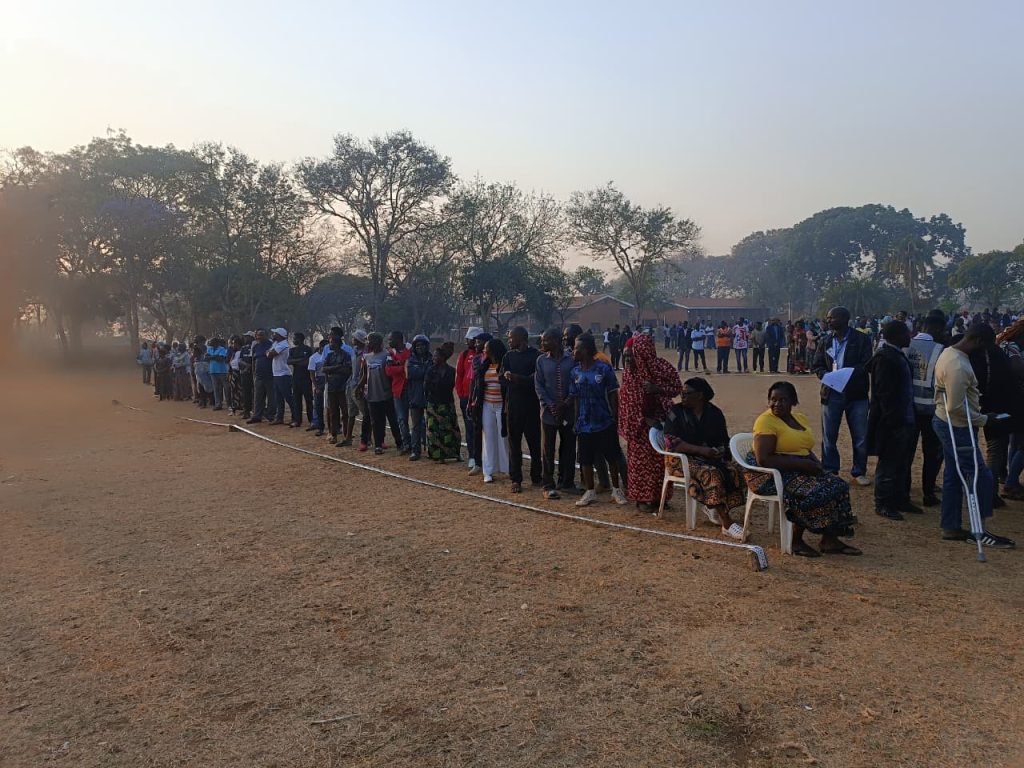Malawi Heads to the Polls Amid Economic Struggles – Correspondent Hillary Panashe Reports from Lilongwe

Lilongwe, Malawi – September 15, 2025 — registered voters are expected to cast their ballots in a high-stakes contest that tests the strength of Malawi’s democracy, five years after the landmark ruling that redefined electoral justice across Africa.
Voters will elect a new president, 229 members of parliament, and 509 local government councillors making this the largest and most complex election since the reintroduction of multiparty democracy in 1994.
The Malawi Electoral Commission (MEC) has confirmed it is fully prepared for the vote, with ballots already distributed across the country’s 5,002 polling centers. In compliance with a recent High Court ruling, only official results declared at polling centers will be admissible, a move designed to increase transparency and counter misinformation.
According to Malawi’s electoral law, the final results must be announced within eight days.
A Test of Trust and Governance
This election takes place amid growing public frustration over economic hardship, inflation, and persistent corruption. Many Malawians are facing a sharp rise in the cost of living, with basic commodities becoming increasingly unaffordable. That economic pressure has fueled voter skepticism toward political elites and heightened scrutiny on the integrity of the electoral process.
“The stakes are very high this time,” said political analyst Dr. Martha Chilima. “Not just for the candidates, but for the institutions that were praised in 2020 for standing firm now they are being tested again.”
2019 Annulment Casts Long Shadow
Today’s vote is particularly significant because of the shadow of the 2019 presidential election, which was nullified by the Constitutional Court in 2020 due to widespread irregularities. That unprecedented decision the first of its kind in Malawi and rare in Africa led to a fresh election, which saw Lazarus Chakwera elected president in a tightly contested race.
The ruling was widely celebrated across the continent as a model for judicial independence and democratic accountability.
However, five years later, many Malawians question whether the momentum for reform has been sustained. Allegations of partisan appointments in key public institutions and delays in electoral funding have rekindled fears that the gains of 2020 may be at risk.
On the Ground in Lilongwe
Our correspondent Hillary Panashe is reporting live from Lilongwe and was up early this morning with voters as polling stations opened. He joined citizens at several polling centers in the capital, capturing the mood and energy of an electorate determined to be heard.
“We arrived at the Area 47 polling center just after 5:30 AM, and already hundreds of people were lined up,” Panashe reported. “Many told us they wanted to cast their votes early and return home safely, while others said they felt a deep responsibility to protect their democracy.”
Photos and live footage from polling stations will be shared throughout the day across our platforms.
Security, Logistics, and Monitoring
Despite challenges, MEC Chairperson Justice Chifundo Kachale assured the nation that all necessary logistics were in place. “We have done our part. The polling materials have been deployed, and staff have been trained. We call on voters to turn out peacefully and uphold the democratic spirit.”
International observers from the African Union, European Union, and SADC are present in the country, monitoring the proceedings to ensure fairness and transparency.
What’s at Stake
The outcome of the presidential race remains unpredictable, with no clear front-runner as of yet. Incumbent President Lazarus Chakwera faces stiff competition from both opposition parties and independent candidates. Parliamentary and local council results will also be closely watched, as they will shape Malawi’s political landscape for years to come.
As Malawians head to the polls, the world is watching not just for who wins, but how the country manages a complex and potentially volatile democratic exercise.
